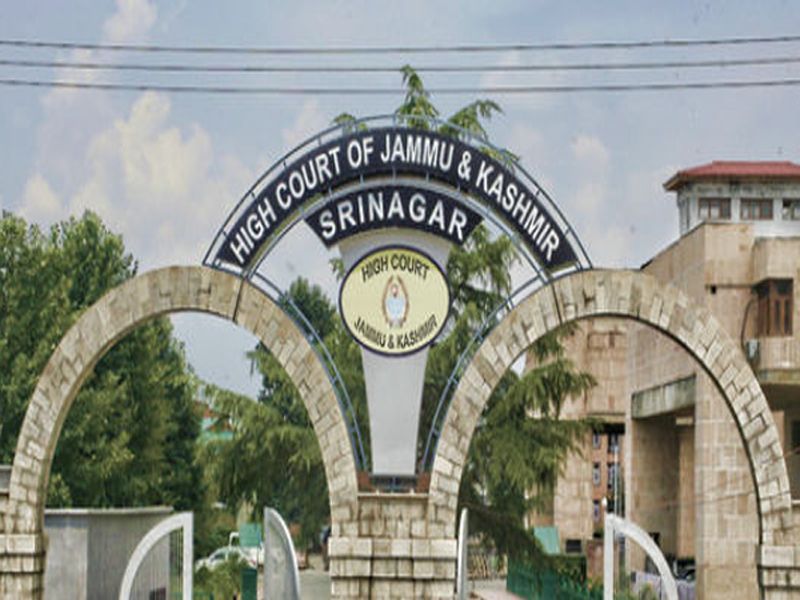Srinagar: Failure to participate in an assembly engaged in singing of the Indian National Anthem without preventing its singing or disturbing the assembly is not an offence under law, J&K High Court observed today.
The court made these observations after quashing an FIR against Dr Tawseef Ahmad Bhat, a former lecturer in Government Degree College Bani Jammu, for allegedly not participating in an assembly singing the national anthem.
Justice Sanjeev Kumar, who heard the matter said “failure of the petitioner to participate in the assembly engaged in singing of Indian National Anthem, intentionally or otherwise, and roaming about in the school premises where the assembly was engaged in singing Indian National Anthem, in my opinion, would not amount to either preventing the singing of Indian National Anthem or causing any disturbance to the assembly engaged in such singing”.
On 29th of September, 2018, the college where the petitioner was serving as a contractual lecturer, celebrated the “surgical strike conducted by Indian Army against Pakistan”.
As soon as he was informed about the convening of an assembly to sing National Anthem, he stopped the class-work and not only allowed the students to participate in the function but himself also joined the event, he pleaded before the court.
Soon after that he was informed that a group of students was holding demonstration against him inside the college premises alleging that he had shown disrespect to the National Anthem.
“On the instigation of one Pawan Sharma, Computer Clerk, the demonstrating students approached SDM Bani with a written application,” the lecturer’s petition read.
It said that the application was forwarded by Sub Division Magistrate (SDM) Bani to Police Station with a direction to lodge an FIR against the petitioner.
It further reads that the teacher lost his contractual appointment because of registration of aforesaid FIR and was discharged from service in 2018.
There is no allegation that the petitioner prevented the singing of National Anthem or caused any disturbance to any assembly engaged in such singing, the petitioner said and that the FIR registered against him under Section 3 of Prevention of Insult to National Honor Act, 1971 [“the Act”] is unjustified.
Hearing the petition the court said “Section 3 of the Act, as it stands as on date, does not make “disrespect” to the Indian National Anthem an offence unless it has the effect of preventing the signing of National Anthem or disturbing the assembly engaged in such signing”.
The conduct must amount to either preventing the signing of the National Anthem or causing disturbance in the assembly engaged in such singing so as to bring it within the purview of Section 3 of the Act, it added.
The conduct of the petitioner, if intentional, may amount to showing disrespect to the National Anthem and a breach of fundamental duty enjoined on citizens of the country by Article 51A of the Constitution. The petitioner by losing his contractual job has already paid the price, the court said.
The contents of FIR, based upon a written complaint of the students of the college, do not constitute a cognizable offence and, therefore, registration of FIR and setting the investigating machinery in motion was not called for, observed the court.
It held “the observations made by Sub Division Magistrate Bani that on enquiry he found that the petitioner had intentionally caused disturbance in the assembly engaged in signing National Anthem is clearly an afterthought”
The court found that this assertion by the magistrate was not part of the complaint made before him by the students, nor is such observation supported by any material particulars.
“Be that as it is, in these circumstances allowing the investigating machinery to proceed in the matter would be an abuse of process of law,” Justice Sanjeev Kumar said.
In the exercise of inherent jurisdiction vested in him by Section 561-A of Cr. P. C., Svt. 1989 (now repealed and replaced by Section 482 Cr. P. C., 1973) he quashed the case against the college teacher.





